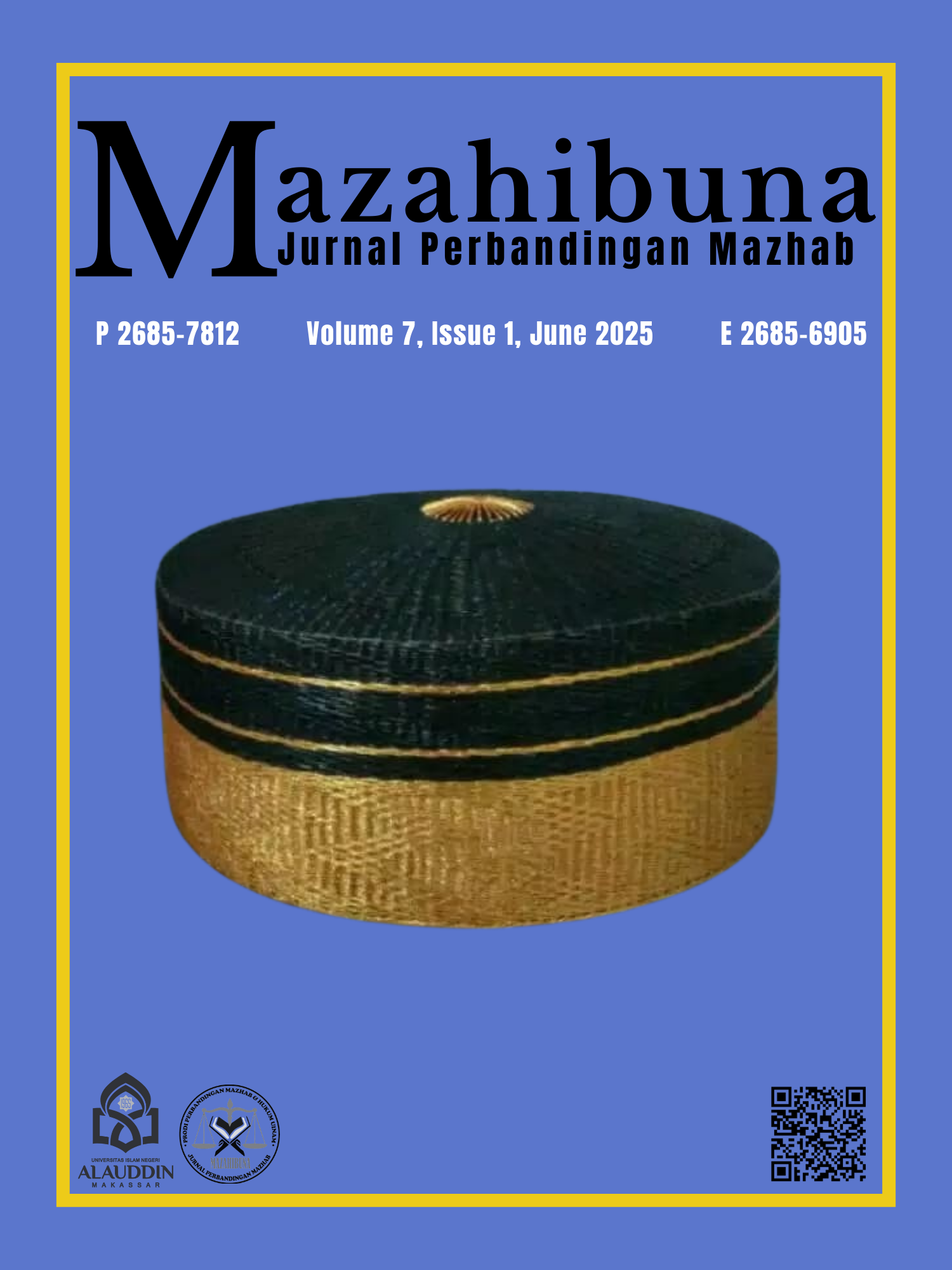Achieving Maqāṣid al-Sharīʿah through Artificial Intelligence
Mechanisms of Facilitation, Control, and Quality Assurance
DOI:
https://doi.org/10.24252/mazahibuna.vi.55038Keywords:
Artificial IntelligenceAbstract
This study examines how artificial intelligence (AI) can be applied to fulfill the objectives of Sharia (maqāṣid al-sharīʿah), especially in terms of facilitation, supervision, and quality assurance in addressing modern societal issues. Using a descriptive-analytical approach, the research focuses on defining AI and its significance, analyzing its characteristics in relation to Sharia goals, and evaluating the impact of its appropriate use. The study draws on a range of scholarly and scientific sources to assess how AI aligns with Islamic legal principles. The results indicate that AI possesses key strengths—such as speed, accuracy, and efficiency—that support the Sharia principle of taysīr (ease and facilitation). When used correctly, AI enhances societal well-being by improving control systems, increasing productivity in fields like agriculture and industry, and helping to reduce insecurity and scarcity. These benefits show that AI can be a powerful tool in achieving public interest and preventing harm, aligning with the ethical aims of Islamic law. This research stands out by directly linking the practical applications of AI to the values embedded in maqāṣid al-sharīʿah, offering an innovative perspective that bridges Islamic jurisprudence with emerging technologies. It also provides useful insights for policymakers, academics, and practitioners, suggesting that AI can be harnessed as an effective strategy for promoting ethical development in social, economic, political, and cultural spheres. The study encourages further exploration into models of ethical governance rooted in Islamic principles in the digital age.
References
Abdulrahman, M. M., & Walusimbi, A. H. M. (2024). Examining the Role of Artificial Intelligence (GPT-3.5) in Issuing Fatwas for Islamic Family Cases: A Comparative Analysis. Journal of Contemporary Islamic Law, 9(2), 30–38.
Downloads
Published
How to Cite
Issue
Section
License
Copyright (c) 2025 Mohamed Hamadikinane Maiga

This work is licensed under a Creative Commons Attribution 4.0 International License.

This work is licensed under a Creative Commons Attribution 4.0 International License.
Authors who publish with Mazahibuna: Jurnal Perbandingan Mazhab agree to the following terms:
- Authors retain copyright and grant the Mazahibuna: Jurnal Perbandingan Mazhab right of first publication with the work simultaneously licensed under Creative Commons Attribution License (CC BY 4.0) that allows others to share the work with an acknowledgment of the work's authorship and initial publication in this journal.
- Authors can enter into separate, additional contractual arrangements for the non-exclusive distribution of the published version of the work (e.g., post it to an institutional repository or edit it in a book), with an acknowledgment of its initial publication in this journal.
- Authors are permitted and encouraged to post their work online (e.g., in institutional repositories or on their website) before and during the submission process, as it can lead to productive exchanges, as well as earlier and greater citation of published work.










